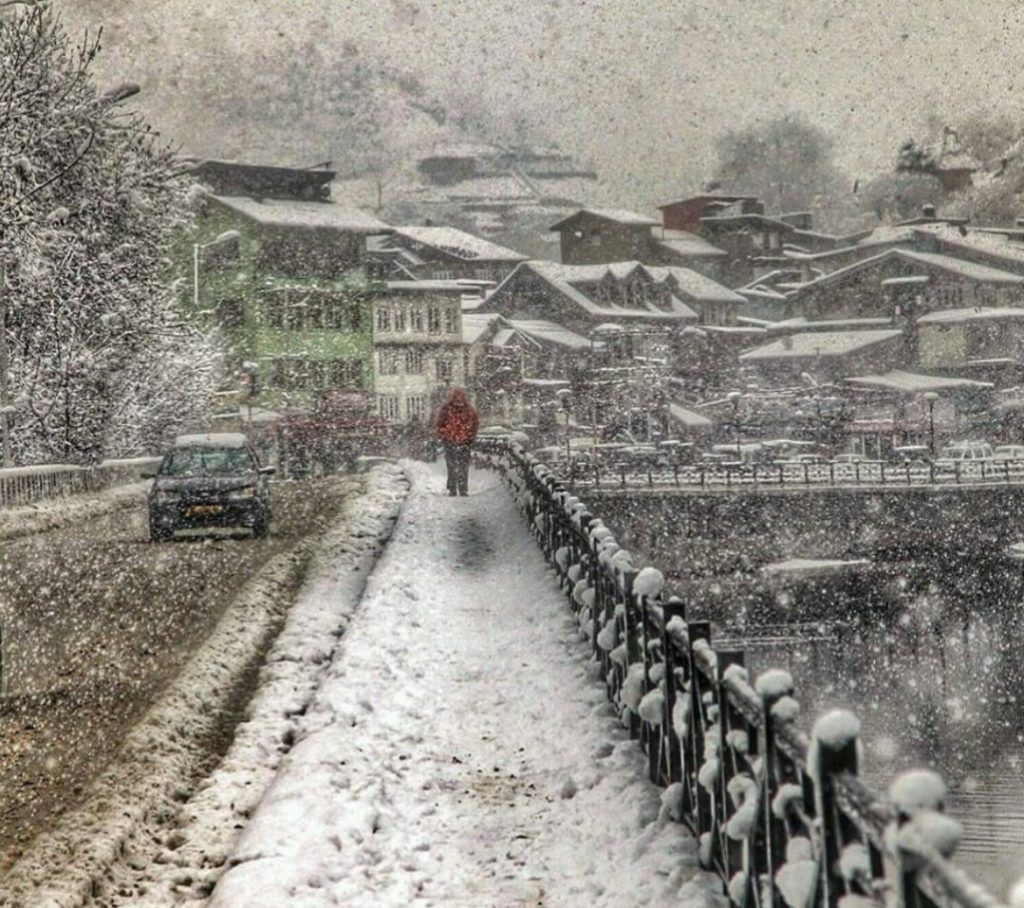Blog, Kashmir Travel Stories
My Life in Kashmir by Nitish Thappa
Author of this article Nitish Thappa was born in Mahraja Bazaar Srinagar, he did his schooling from Khalsa School Magarmal Bagh and then Biscoe school. He did his bachelors from SSM College, Pattan, Kashmir and currently works in Delhi.
The streets are deserted, yet crowded. Crowded by the fears of residents and by the pride and disrespectful behaviour of the men in uniform. The sound of marching boots and breathless slippers is all you hear, be it day or night. Life is not determined by good deeds or sins ; work or money but by a one small piece of paper, mostly laminated. The people guard the piece of paper with their lives, holding it more zealously than a mother would hold her newborn. You know you will be either ‘taught a lesson’ or simply disappear if that note of life is not with you.
The others, ‘fellow countrymen’, are unaware and even find the little piece of paper’s importance funny. The laughs in the movie hall during one particular scene in the movie Haider were the testimony to this fact. I didn’t laugh, neither did my most Kashmiri friends. For us, who lived in the mystical paradise on earth (Kashmir, for the uninitiated) during 1990s, the piece of paper or the Identity Card was the difference between life and grotesque aftermaths. From a 10 year boy to an octogenarian, the ID card was the hope, at times the only hope.
Ranks of soldiers, who were merely fulfilling their duties and following orders, were scared as well. At the drop of a hat, bullets went flying from all nooks and corners (most bunkers were at the corner of roads). And as surprising as it may sound, bullets do not have eyes or brains, but at least the flying messengers of death were nor discriminating. Children, middle aged people and the elderly, all were greeted by the little dudes in metal jackets.
Every time one stepped out or was late for even a minute, hysteria and a bone chilling fear gripped the family. The million dollar questions were asked to everyone, ‘kaunsi tarf ho?’ (Which side are you on?) or iss paar ya uss paar (this side or that side?). We never knew the answer, the right answer for that matter. It was like a trick question; you are wrong if you are right and you are of course wrong if you are wrong.
Everything and everyone was stuck in a limbo. No one knew what the next rising sun would bring; another crackdown, a curfew, an encounter or something even more dreadful. Even the calming words like MAMA and PAPA induced horrors (they were the names of ‘detention’ centres of the armed forces, right in the middle of the Srinagar). Those who could afford to send their loved one away made sure they did. The rest, well, they prayed and prayed. That is all they could do. However, even the Gods don’t hear prayers at times. Orphaned, half-widows, widows, surrendered, these were few of the word each and every one knew, regardless of the fact whether they were educated or not.
I cannot find the words to close this piece of writing, as the ordeal itself hasn’t ceased to exist. The rules might have changed, new words might have been introduced, but nightmares and fears haven’t. We still live, do the day-to-day tasks, and do whatever is required, in oblivion. An oblivion of what was and what will be.
Originally published on his blog
Photo by Tabish Habib




